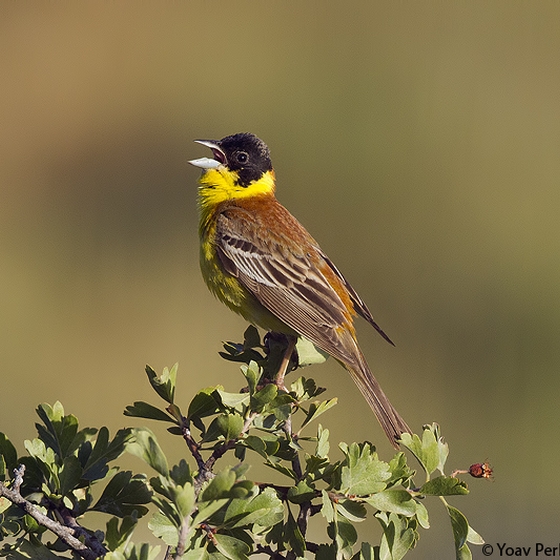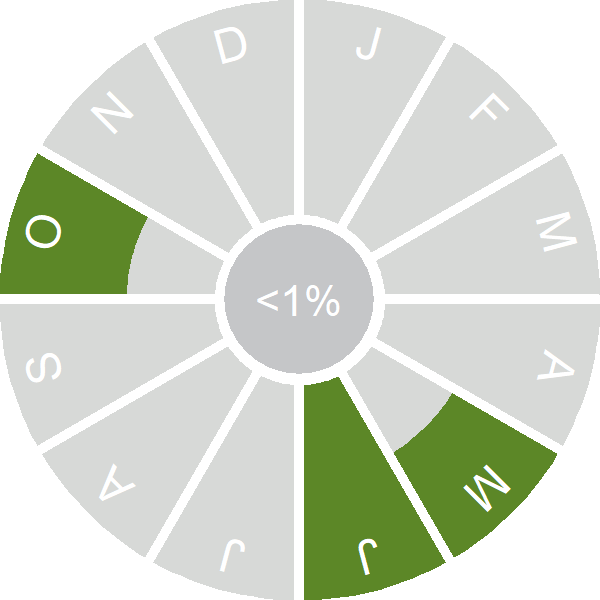Black-headed Bunting

Introduction
A rare visitor from south-east Europe, with most records in the spring. Numbers of this brightly coloured bunting are declining markedly in its native farmland habitats and this may impact the likelihood of further arrivals.

Key Stats
Status and Trends
Conservation Status
Population Size
Population Change
Population trends of this scarce species are not routinely monitored.
Distribution
This species is a rare vagrant and was recorded during Bird Atlas 2007–11 as shown on the map.
or view it on Bird Atlas Mapstore.
European Distribution Map
Distribution Change
This vagrant is too rarely reported to map distribution change.
Seasonality
Black-headed Bunting is a very rare vagrant with most records in late spring and some in autumn.
Weekly pattern of occurrence
The graph shows when the species is present in the UK, with taller bars indicating a higher likelihood of encountering the species in appropriate regions and habitats.

Movement
Britain & Ireland movement
Biology
Survival and Longevity
Survival is shown as the proportion of birds surviving from one year to the next and is derived from bird ringing data. It can also be used to estimate how long birds typically live.
Classification, names and codes
Classification and Codes
- Order: Passeriformes
- Family: Emberizidae
- Scientific name: Emberiza melanocephala
- Authority: Scopoli, 1769
- BTO 5-letter code: BLHBU
- Euring code number: 18810
Alternate species names
- Catalan: sit capnegre
- Czech: strnad cernohlavý
- Danish: Hætteværling
- Dutch: Zwartkopgors
- Estonian: mustpea-tsiitsitaja
- Finnish: mustapääsirkku
- French: Bruant mélanocéphale
- German: Kappenammer
- Hungarian: kucsmás sármány
- Icelandic: Hettutittlingur
- Irish: Gealóg Cheanndubh
- Italian: Zigolo capinero
- Latvian: melngalvas sterste
- Lithuanian: juodagalve starta
- Norwegian: Svarthodespurv
- Polish: trznadel czarnoglowy
- Portuguese: escrevedeira-de-cabeça-preta
- Slovak: strnádka ciernohlavá
- Slovenian: crnoglavi strnad
- Spanish: Escribano cabecinegro
- Swedish: svarthuvad sparv
- Welsh: Bras Penddu

